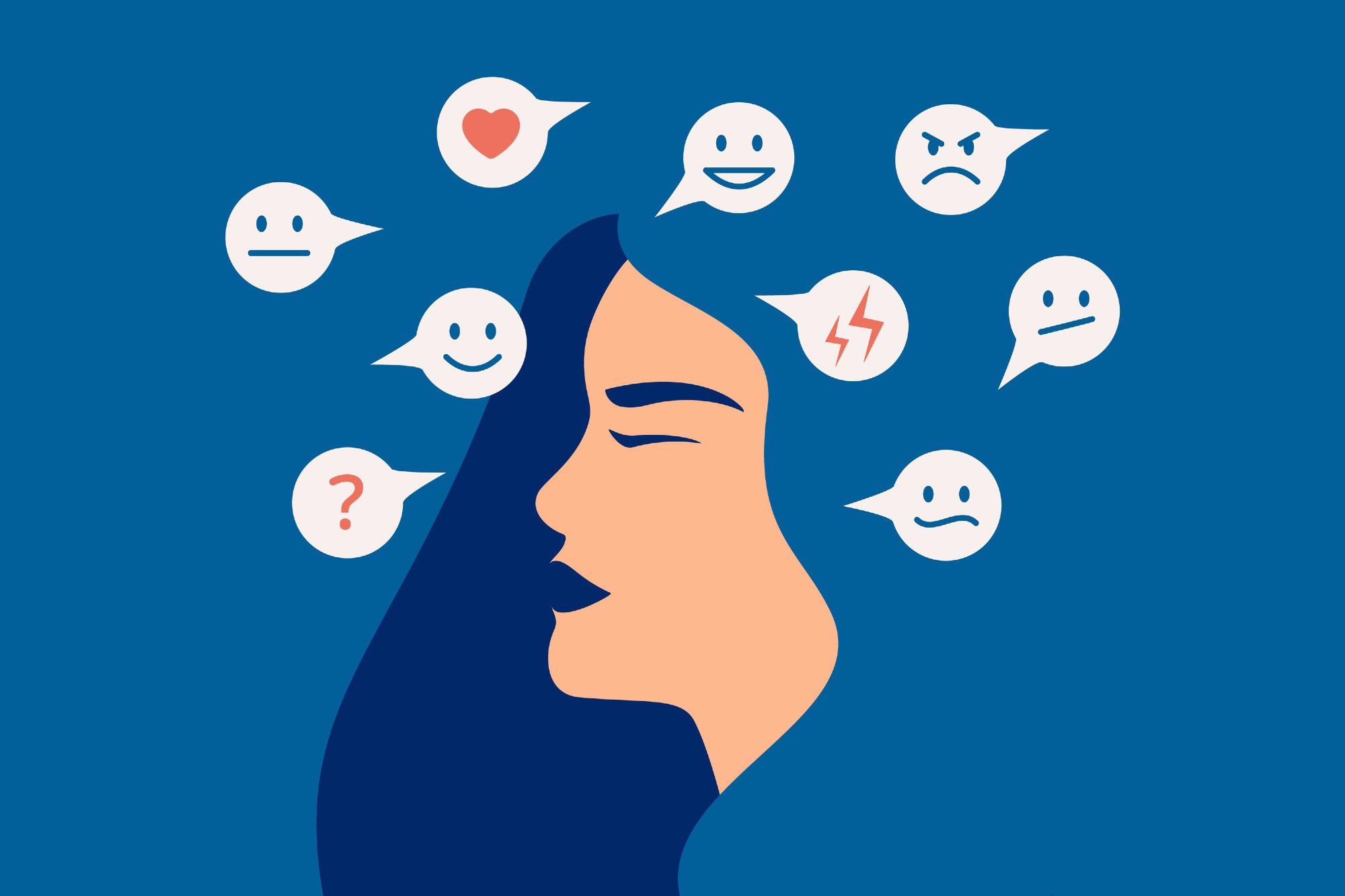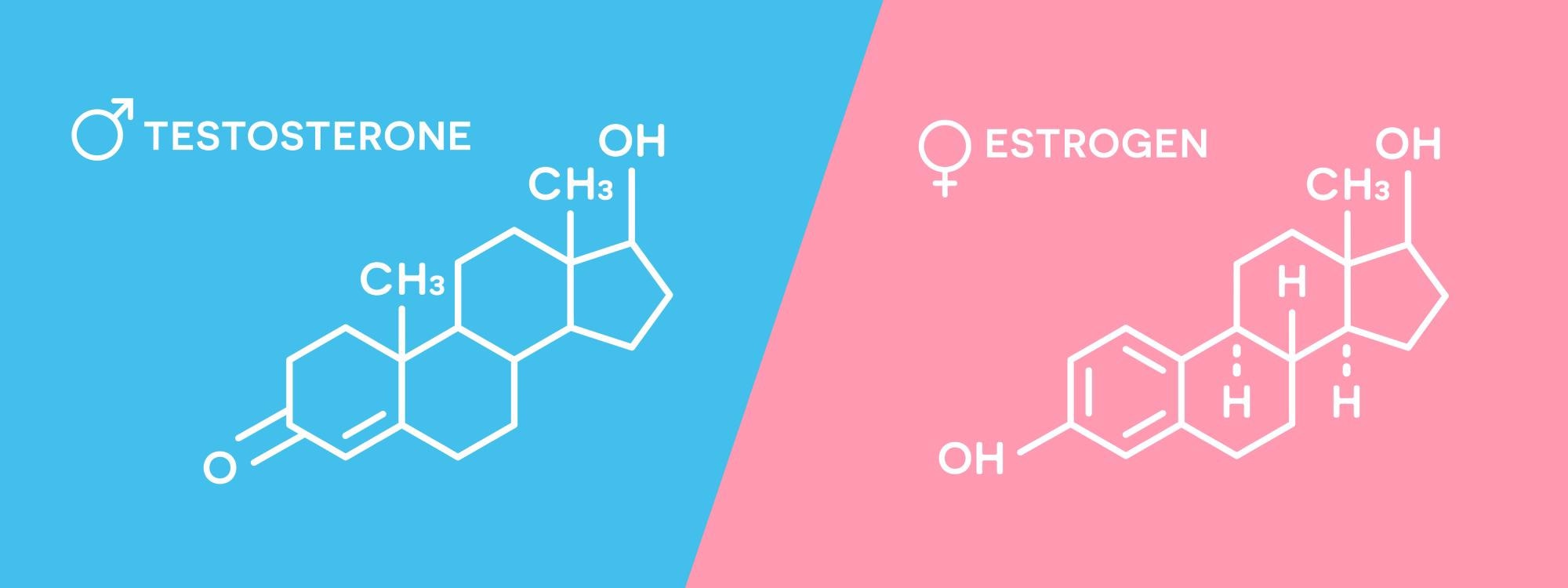There is a connection between our hormones and our mental health. This article will broach the debate on hormones vs mental health, first by looking at the problems of hormonal imbalance and its association with common medical ailments and second by considering the issue from a gendered perspective.

Mental health. Image Credit: Mary Long/Shutterstock.com
In recent times there has been some controversy over research connecting hormones and female mental ill-health. Insight has been garnered into severe psychiatric conditions that are particular to women and have, for a long time, remained mysterious and scarcely researched.
Hormonal imbalance and mental health
Those with endocrine disorders do not just have to deal with physical symptoms; they are also susceptible to psychiatric ill-health symptoms such as anxiety, depression, lethargy, brain fog, mania and confusion. The thyroid gland is responsible for producing hormones called T3 and T4. There is an abundance of T3 receptors in the brain and so this hormone is the one that is the more important for our mental health.
The underperformance of the endocrine system can lead to things going array. Those suffering endocrine conditions are susceptible to:
- Hypothyroidism ––an underactive thyroid
- Hyperthyroidism ––an overactive thyroid
- Addison’s disease ––adrenal gland insufficiency (not enough cortisol or aldosterone)
- Acromegaly ––a dysfunction of the pituitary gland
In the case of thyroid imbalance, mood problems can occur. Research has revealed that aggression is a problem symptom of hyperthyroidism. The medicines commonly prescribed to treat thyroid imbalance can lead to problems too. Sometimes treatment can cause restlessness and/or irritability.
Another common condition linked to hormonal imbalance and concomitantly mental ill-health is inflammation. Problems can occur as a result of autoimmune reactions spurred by abnormalities of the thyroid and the associated hormonal imbalance. Research has demonstrated the incidence of increased inflammation in the brain of those suffering from depression or anxiety.
Experiencing mental ill-health as a result of hormonal imbalance is not confined to those who already have a designated diagnosable medical condition. It is well-known that stress is a common culprit for causing and exacerbating mental ill-health. Perhaps lesser known is that the biological intermediary and therefore physical culprit that is a manifestation of ‘stress’ is the hormone cortisol.
A hormonal cure?
We are used to the prescription of psychiatric medications, such as anti-depressants, or the use of talk therapies such as psychotherapy and counseling as methods for treating mental-ill health. It is now also well known that hormonal treatments can provide a naturalistic alternative to drug treatments as a potential solution. As an example, the use of Hormone Replacement Therapy (HRT) has become a commonplace treatment for women suffering from menopausal symptoms.
In some cases, and in converse to administering hormones, rather the appropriate solution can be to block them. A new and exciting avenue for research involves the prospect of blocking reward centers in the brain. This aims to combat the problems and effects of the overproduction of serotonin that occurs in response to additions such as alcohol, drugs, food, gambling and shopping.

Sex hormones. Oleksandr Drypsiak/Shutterstock.com
Sex hormones and mental health
Women’s health issues have historically gone underfunded and feminist historians have uncovered gender bias in past medical health research and healthcare. The tendency has been to explore problems relevant to men and male biology more than to women. Now, researchers have uncovered a biological basis for psychiatric conditions that women have long been susceptible to and have suffered throughout the ages.
In the 1980s, a young doctor based in Australia named Jayashri Kulkarni listened to the plight of women who had developed psychiatric symptoms that she suspected were due to hormonal changes. The symptoms occurred either in the midst or in the aftermath of the major life changes in a woman’s life that are traditionally associated with hormonal fluctuation ––puberty, pregnancy, childbirth and the menopause.
Many women have traditionally experienced mental health issues at these key times. For some, the onset of a mental health condition is severe and for a few, it can be fatal. Yet the connections between hormones and health have for a long time remained mysterious and in all but the most serious cases were frequently dismissed as the ‘baby blues’ or ‘that time of the month.’
Kulkarni discovered that in some cases a simple course of replacement hormones can be enough to alleviate or even cure symptoms. In pregnancy, for instance, women experience a progressive rise in the hormone allopregnanolone (formed from the sex hormone progesterone) followed by a sudden crash responsible for the onset of what many understand to be the ‘baby blues.’
Most women recover but some do not. In one striking case a woman had been institutionalized for many years due to the onset of post-partum auditory hallucinations so severe that they caused her to become incapacitated. Remarkably, when Kulkarni administered a simple course of artificial hormonal therapy, the woman in question ceased to experience symptoms.
There is a fascinating debate to had here. Some feminist scholars argue, contra to this recent research, that such studies may prove harmful to progress in achieving the equality and freedoms women have long fought for. The return to a medical ‘cure’ does nothing to address many of the problems women have fought hard to resolve such as violence against women. It spurs a return to the stigma of ‘hysteria’ ––negative feminine mood dysregulation, originally attributed to being caused by the uterus.
While the area of women’s hormonal and mental health research is met with trepidation, the connection between hormones and our mental health is only in its infancy and more research is yet needed to fully understand it.
References
- Basile, L. M. (2022) Hormonal Imbalances and Mental Health: Endocrine disorders can affect your mental health. Endocrineweb. Online: https://www.endocrineweb.com/hormonal-imbalances-depression.
- Brighton Women and Science Group (1980) Alice Through the Microscope: Power of Science Over Women's Lives (Virago Press Ltd).
- Nogrady, B. (2021) The chemical question: does focusing on hormones undermine mental healthcare? The Guardian. Online: https://www.theguardian.com/society/2021/may/09/the-chemical-question-does-focusing-on-hormones-undermine-mental-healthcare.
- Palkhivala, A. (2001) Hormones for Your Head. Webmd. Online: https://www.webmd.com/balance/features/hormones-for-your-head.
Further Reading
Last Updated: May 4, 2022